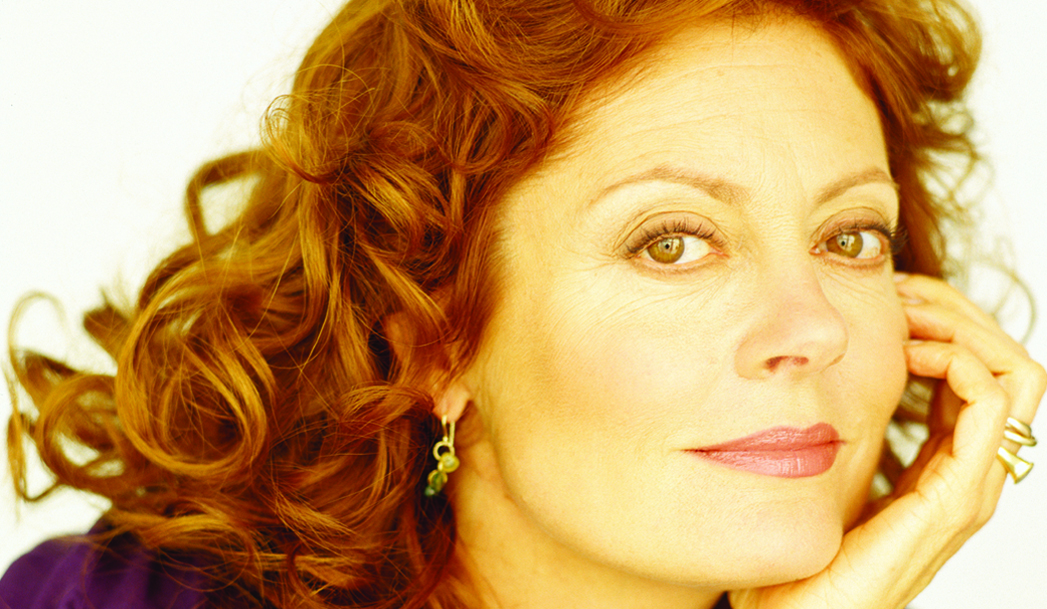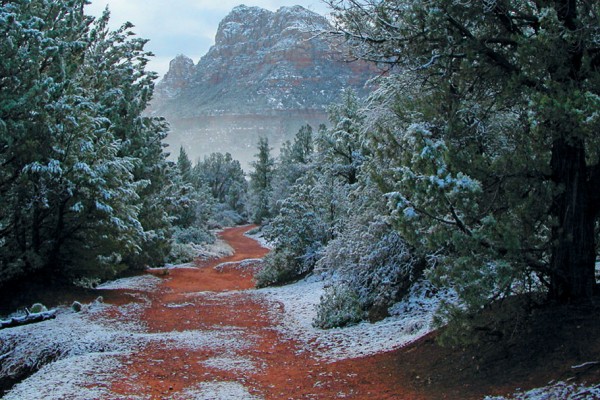Academy Award-winning actress Susan Sarandon co-produced her first movie (The Great Smokey Roadblock) in 1977, seven years after starring in her first feature film. She recently stepped behind the camera again to act as executive producer for two documentaries, Waiting for Mamu and These Storied Streets (both directed by Thomas Morgan, who talks about the films in a bonus interview). Waiting for Mamu tells the story of 2012 CNN Hero of the Year Pushpa Basnet, and her quest to care for children in Nepal who have been imprisoned alongside their parents. These Storied Streets sheds light on homelessness in the U.S. Both films will be screened at the Sedona International Film Festival, which takes place Feb. 22 through March 2 at Harkins Sedona 6 and the Mary D. Fisher Theatre. Susan will also receive a Lifetime Achievement Award. Susan checked in with Sedona Monthly to talk about the documentaries and her illustrious career.
Sedona Monthly: How did you become involved in Waiting for Mamu and These Storied Streets?
Susan Sarandon: Tom Morgan is the link between both projects. I met him through a friend. He was talking about wanting to do a documentary. He hired my son, Jack Henry [Robbins], and a number of recent graduates from the [University of Southern California] film department to do These Storied Streets. After graduation, they traveled across the United States, interviewing different demographics of homeless people. Because of the money situation, we took a break from filming. Meanwhile, Tom had met [Pushpa Basnet] at a dinner. He talked to me about that, and we decided to try to make that happen, too. I met Tom socially at spin [class], and it went from there. Now we’re talking about going into a production company that would do documentaries that deal with social issues that people haven’t heard about. I really believe some of the most exciting things that are happening right now are happening with documentaries. I was a judge for an awards show that’s airing tonight called BRITDOC that includes five really wonderful documentaries. We had to choose which one had the greatest impact, which is different from choosing the one that you think is the best documentary. That was an interesting exercise.
So you see yourself producing more documentaries in the future.
I do, and I’d even like to direct them. I’ve always wanted to be in front of the camera, so I’ve been interested to see if I’d [enjoy] going out and making them.
So this would be a new path for your career.
It would. I’ve done so many narrations for documentaries. I’ve been in that world for quite a bit.
Pushpa Basnet’s story is remarkable. What do you want viewers to take from this film?
First of all, here’s this 21-year-old who learns about a situation she hadn’t known existed that moves her – in particular one child that moved her. Instead of saying, ‘that’s too bad,’ she knew she had to do something. I think that’s an amazing lesson. You start off small, and it can turn into something big and quite beautiful. And it’s easy – if you take it step by step – to accomplish something huge. When you invest love in human beings, they respond remarkably. You get satisfaction from less material gifts but rather a joy that enriches your life in ways you can’t even imagine. That’s what people don’t understand – it’s very self-serving. It enriches your life so much and puts you in touch with people who give you hope. When you can see change, when you’re actually hands on, that’s really extraordinary as well.
What about These Storied Streets?
The intention was to challenge the myth of how you become homeless, who is on the street and the impression that [they’re] goofing off. You see how difficult it is to survive and what it means and how hard it is to get a job without an address – all the things that happen when you’re homeless. When these kids [conducted the interviews], it was eye opening for them. In fact, it turned out that a girl in their film class was homeless, and they had no idea. I hope that it will make people understand that we need low-income housing and not just dismiss people who have wound up on the street.
If you were offered a great role that didn’t mesh with your own political sensibilities would you accept it?
Well, I’ve played plenty of people that aren’t of my political persuasion. In Snitch, I play a Republican prosecutor who’s fairly ruthless. The whole fun of being an actress is that you’re not playing yourself. I’d play any interesting part if she had conviction.
Out of everything you’ve done, what is the project most dear to your heart that didn’t catch the public’s attention?
I would say Anywhere But Here or Jeff, Who Lives at Home. Those two really got dumped by the studio. I think that they are good films, and they have a lot of heart.
How do you feel about Rocky Horror Picture Show’s cult status?
I think it’s wonderful. ‘Don’t dream it, be it’ is a wonderful mantra to have. I’m very proud of it. I think it’s hilarious that that will be my legacy, but I love that movie. I think it’s been very relevant for a lot of kids.
You really think that film will be your legacy?
Just the fact that I’ve done everything wrong in my career and I’m still working tells me you never know how things are going to work out. It wouldn’t surprise me if that [movie] lasted longer than anything else I’ve done.
If you could go back in time, which actress or actor would you have been most excited to work with?
Montgomery Clift.
What is your own favorite movie, and why?
I go blank when anyone asks me a question like that. There are so many great movies. I love The Grapes of Wrath.
Have you seen anything recently that grabbed your attention?
I saw a documentary called The Act of Killing, which I thought was one of the most brilliant documentaries I’ve seen.




